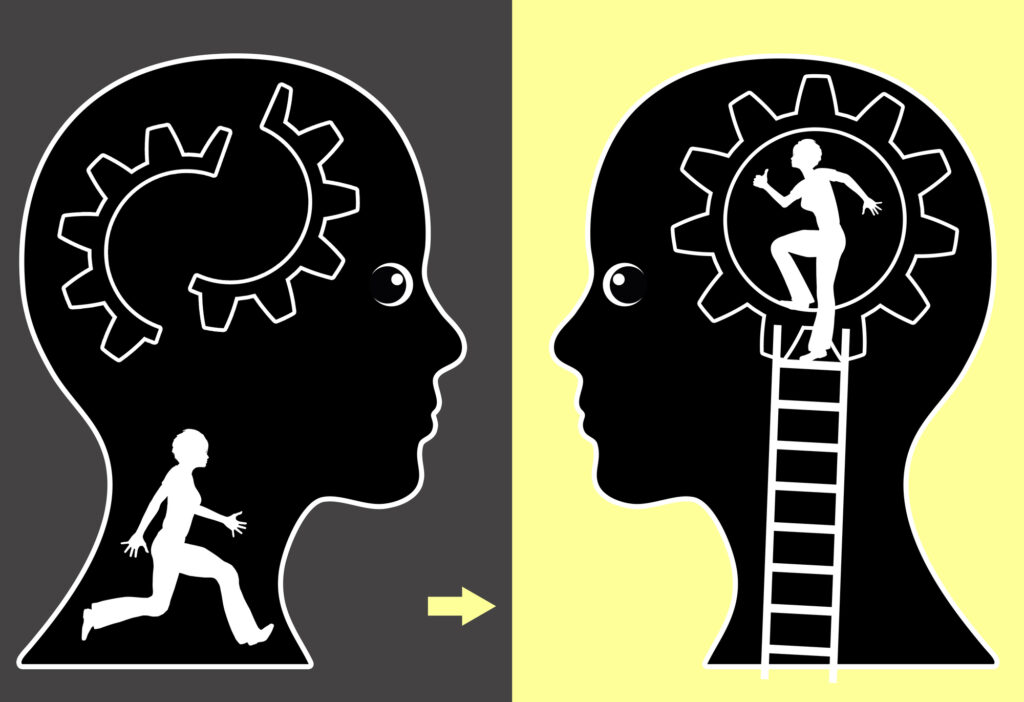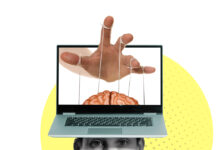On the heels of his recent book, Chemically Imbalanced, Joseph E. Davis has published an article arguing that neurobiological understandings of what he calls “everyday suffering” can act to foreclose traditional and – as Davis implies – beneficial and valuable paths to self-understanding.
Whereas as recently as the 1980’s the lay public tended to comprehend suffering in terms of psychological issues or adverse life events, we have increasingly come to a biological understanding of the roots of mental distress.
As Davis writes, for example, comparative studies of General Social Surveys conducted in 1996 and 2006 reveal “a significant increase in the percentage of the public that endorsed ‘chemical imbalance’ and ‘genetic problem’ as possible causes of depression and schizophrenia. The study also found an increase in the public endorsement of medical treatment and prescription medicine for both conditions.”
This trend is especially accurate, Davis notes, among those who have personally dealt with mental health problems.
 Hermeneutic or phenomenological approaches to mental suffering aim to explore how these feelings are experienced and understood, using methods of interpretation to make sense of experience within its broader contexts.
Hermeneutic or phenomenological approaches to mental suffering aim to explore how these feelings are experienced and understood, using methods of interpretation to make sense of experience within its broader contexts.
Biomedical and neurobiological approaches, on the other hand, emphasize pharmacological treatment for mental suffering based on the assumption that mental disorders are brain diseases. This approach has been criticized for its narrow focus on the individual divorced from the sociopolitical context. Moreover, it has been linked to stigma and discrimination against the neurodivergent when other explanations of difference are ignored.
Through a series of case studies conducted over years of fieldwork interviews with persons experiencing mental distress, Davis charts the central problem he finds in this shift towards biomedical understandings of what he calls “everyday suffering.”
Many interviewees, Davis notes, “cited the fact of a formal diagnosis as conferring a special facticity and legitimacy on their suffering. They … contrasted ‘real,’ objective problems with soft, subjective issues that are ‘petty’ or intangible, that you should be able to ‘just talk out.’”
Davis notes a redemptive quality for his research subjects in the availability of diagnoses that refer to neurobiological or genetic issues. It is, “[f]or their painful, confusing, and frustrating experience … the explanation they had been looking for.”
Yet reasoning in this way, Davis argues, “would seem to imply that their thoughts, emotions, or behavior follow with an important degree of necessity from their faulty biology and that they lack control over themselves in an important aspect of their life.”
The problem, Davis continues, is that the explanation offered by the neurobiological elides our past and first-person experience and our opportunity to make meaning out of emotional distress, as well as contention with the norms and circumstances against which we measure our emotional and affective lives.
This has the effect of “demoting” our relationships with others as emotionally impactful and naturalizing the “norms of being” that tell us, for example, that it’s normal to work and achieve in ways that might not be or feel natural or available to us; and that this lack of availability indicates a problem with us and not the norm.
The biomedical model, in other words, “’naturalizes’ its underlying symbolic and normative frameworks, disengaging these frameworks from the public languages of morality or social philosophy. It leads to the exclusion of the social and economic causes of individual distress and the role that structural change might play in ameliorating suffering and promoting well-being.”
This is what Davis means by “hermeneutic closure”: the appeal to neurobiological mechanisms forecloses other possible understandings of causes of our suffering, which in turn can promote conformity to dominant cultural values and definitions of the “good life,” as well as close off other imaginaries of recovery, therapy, and change. It can also narrow our horizons for imagining agency, acceptable human variability, and difference.
****
Davis, J. E. (2021). ‘The Explanation you have been Looking for’: Neurobiology as Promise and Hermeneutic Closure. Cult Med Psychiatry. https://doi.org/10.1007/s11013-021-09737-2 (Link)















Neurobiological explanations are just magical thinking. They assume some neurobiological cause without ever having shown it to actually exist or even attempting to do so. Of the millions of people taking SSRI for depression exactly zero had serotonin levels actually measured, etc.
These neurobiological explanations are a fallback to prescientific reasoning.
Report comment
please keep working to tear down pyschiatry as it currently tortures me . . .
Author: “Biomedical and neurobiological approaches, on the other hand, emphasize pharmacological treatment for mental suffering based on the assumption that mental disorders are brain diseases. This approach has been criticized for its narrow focus on the individual divorced from the sociopolitical context. Moreover, it has been linked to stigma and discrimination against the neurodivergent when other explanations of difference are ignored.”
Nothing is worth psychological mental torture from unchecked criminal psychiatry based in the biolmedical model and human greed and corruption, not art or dogs or gardens or woods or water or the sky above.
victim being murdered too slowly to homelessness breakdown and death by criminal not forensic psychiatry protected by the state of Michigan
Report comment
I like this article Jenny. It is informative to me. Thought provoking.
If I were to take a piece of meat I suppose it would be finicky to try to remove the nerves from the meat. At some fractal level nerves and meat are enmeshed.
I am against nothing…
but bad treatment.
I feel that bad treatment tends to be ushered though at speed with no dialogue and the push to do so is achieved by doning the mantle of expert. But from the get go “expertise” tends to want to “specialize”. This carving out a specialist niche causes the carving up of the human anatomy. And so the nerves must be picked out with the expertise of a pathologist tweezering up carpert fibres. This specialist focus can itself foster a need to regard the sacred items of carpet fibres or nerves as “serious”. More serious than just the meat. This is in order to justify the need of a specialism. And to lend weight to how “serious” the carpet fibres of nerves are, there is an urge to make them seem “problematic”, rather than just an integral part of the whole body. This tendency to problematize a special bit of the body, to legitimate expertise, can drive bad treatment.
But I will say that this does not mean bits of the body cannot go haywire or unwell or out of order or odd, whether meat or nerves. Illness can happen anywhere in the body.
Good article though. I enjoyed it.
Report comment
“neurobiological explanatory models for mental health and suffering can prevent valuable self-exploration.” I’m pretty certain, given the fact that the number one actual societal function of both the psychological and psychiatric industries, is covering up child abuse and rape.
https://www.indybay.org/newsitems/2019/01/23/18820633.php?fbclid=IwAR2-cgZPcEvbz7yFqMuUwneIuaqGleGiOzackY4N2sPeVXolwmEga5iKxdo
I can no longer find the MiA article on “victim blaming” on the internet, that scientifically points out that over 80% of psychiatry’s clients are child abuse survivors.
Nonetheless, given the fact that covering up child abuse and rape is the number one actual societal function of today’s “mental health” industries.
I’m quite certain preventing “valuable self-exploration” into one’s real life concerns is the primary goal of the scientifically “invalid” “neurobiological” DSM stigmatizers.
Especially since covering up child abuse and rape is by DSM design, since child abuse is a non-billable non-disorder/crime.
https://www.psychologytoday.com/us/blog/your-child-does-not-have-bipolar-disorder/201402/dsm-5-and-child-neglect-and-abuse-1
But at least since systemically covering up the sexual assault of my small child did seem to be the goal of many of my medical “professionals,” particularly the psychological and psychiatric ones. Once the medical evidence of the abuse of my child was handed over, all of their systemic crimes made sense to me.
And understanding I was dealing with – confessed by an ethical pastor – the medical/religious “dirty little secret of the two original educated professions.” It did eventually help me to understand why a criminal ELCA pastor had denied my innocent child a baptism, on the morning of 9.11.2001, and why he had me drugged up.
And “the truth shall set you free.” So I’m quite certain the systemic child abuse and rape covering up “mental health professionals'” “neurobiological explanatory models for mental health” are all about preventing “valuable self-exploration.” The “neurobiological explanatory models” are all about hiding and covering up appalling truths.
Report comment
The way the brain is wired is important, but it is not important in the way psychiatry, etc. thinks it is important. What is usually forgotten, very probably on purpose is that each brain is uniquely created, as is the body and all that comes with the individual person. It is our unique individuality that makes us human. Actually, other creatures also share this unique individuality. Whether it is more apparent in humans is under discussion. Additionally, this is the gift of America; an real nation of true individuals. But, of course, a lot of wild ideas come hither and thither and get in the way of this truth. It is important to reclaim this now. This is how we win against the evils of psychiatry so permeating our society at present. We reclaim our individuality and our optimism. We need to stop letting what happened to us under the cruelty of psychiatry to affect our daily lives after we have left their yoke of evil. Yes, we may have to endure brain damage or other physical effects (this varies with each person) and we may have terrible memories of the abuse meted out to us. Actually, the drugs shut out much of my memories during the years they drugged and therapized. But life goes on and life is short. Why suffer any more than we have to? The way to win against psychiatry is too no longer kowtow to their desire to make victims out of us. We need to look psychiatry straight in the eye (of course depending on the situation, it may be metaphorical) and tell them “I am free! You do not own me anymore! I am absolutely not mentally ill! And I will enjoy my life and not suffer any more abuse from you! I do not give you the right to live rent-free in my head!” This is the way we will begin to defeat the evils and begin our winning streak. We will win. God is on our side. Thank you.
Report comment
One is not tortured unless one wants to be tortured. Thank you.
Report comment
As a neurodivergent thinker and artist, I have found neurobiological models useful in a sense that they can provide generic systems for mapping abstract thought processes in a bottom up way, not as a literal explanation from the top down. So much of how the neurodivergent mind processes the world is rooted in sensory experiences which have no language, so the public language of morality or social philosophy have no meaning to me unless I can understand them through the context of my body. We can’t begin to understand ourselves until we come to the realization that we cannot control what we sense, but what we sense does not have to control us.
Report comment